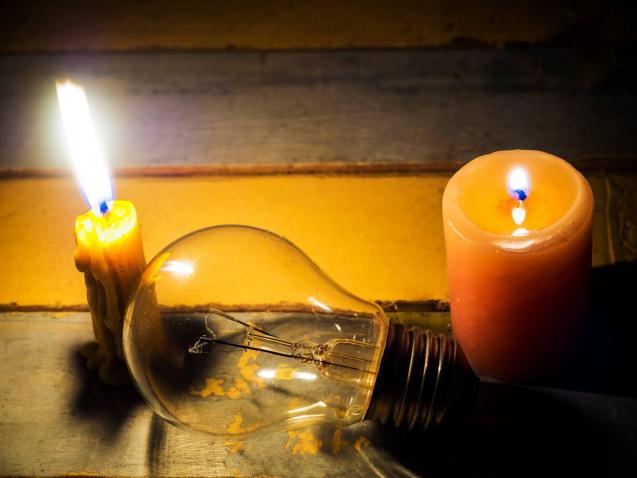
Top Energy Efficiency Measures for Sydney Homes
By Captain Cook Electrical|May 16, 2024
As urbanisation gains momentum across the globe and the human impact on the environment becomes more noticeable, energy efficiency is a topic that has garnered much critical attention. Home to more than five million people, with a diverse array of housing styles, Sydney provides us with an important case study of residential energy consumption. This article aims to explore and elucidate the top energy efficiency measures best suited for Sydney homes, offering homeowners and tenants alike options to minimise their carbon footprint and lower their energy expenses.
Understanding Energy Efficiency
Trying to tease out the real meaning of 'energy efficiency' can sometimes feel like navigating a maze. In essence, it is about reducing the amount of energy required without compromising the service provided. Think about it this way: it's getting the same amount of light from an energy-saving LED bulb as you would from a conventional incandescent one, but the LED bulb uses significantly less power to produce that light. Inefficient energy use leads to unnecessary energy wastage, which not only manifests in steadily climbing utility bills but also contributes to an increase in harmful greenhouse gas emissions. By opting for more energy-efficient options within their homes, Sydney residents can do their bit to protect the environment, all while saving themselves money. The New South Wales Government has put various energy efficiency regulations in place to encourage residents to optimise their energy use, allowing for a win-win situation.
Energy Consumption: Primary Culprits in Sydney Homes
The rising electricity costs in Sydney have been a major cause for worry among homeowners and renters in the city. While high energy consumption can be attributed to an array of factors, key offenders are household appliances, especially when they are left on standby mode. Lights are also big power consumers, with energy being wasted unnecessarily if they’re left on when not needed. Poor insulation is another factor often overlooked. Without adequate insulation, homes lose heat during winter and gain heat during summer, resulting in ongoing, excessive reliance on heating and cooling systems. Having energy-efficient windows and doors is another necessary aspect to prevent drafts and heat leakage, which also hugely impact energy consumption.
Implementing Efficient Lighting Solutions
The choice of lighting can significantly impact your energy usage. Energy-efficient lighting options, like LEDs, offer greater longevity and use a fraction of the energy when compared to traditional lighting methods. The simple act of maximising the use of natural light reduces the need for artificial lighting during the day, assisting in creating a more energy-efficient home. Additionally, integrating sensor-based or timer-based lighting systems can prevent wastage by ensuring lights are only on when required. For those looking to tap into more innovative options, solar light tubes are worth exploring. These devices capture and redirect daylight where it's needed in your house, reducing the dependence on conventional lighting systems and harnessing renewable solar energy.
Improving Home Insulation for Optimum Energy Use
Adequate insulation is crucial in any energy-efficient home. A house that's properly insulated will maintain a more consistent internal temperature, dramatically reducing the demand for artificial heating and cooling. In Sydney, homeowners can opt for various insulation types, like bulk insulation and reflective insulation, each offering unique benefits when installed correctly. Professional installation of insulation is integral to ensure they perform optimally and do not contribute to energy losses. Insulation also has a lifespan, and regular maintenance checks and upgrades can identify any potential issues before they start impacting the home's energy efficiency.
Utilising Energy-Efficient Appliances and Systems
Understanding energy star ratings is key when choosing household appliances. These ratings provide a clear indication of an appliance’s efficiency. Higher-rated appliances might command a higher upfront cost, but they offer substantial energy savings over the appliance's lifespan, making them a worthwhile investment. A regular maintenance regimen for these appliances is non-negotiable if these appliances are to maintain their energy efficiency over time. Another excellent way to become more energy efficient is the adoption of renewable energy systems, such as solar panels. Sydney's generous sunshine offers an abundant supply of solar energy, which can be harnessed to power your home, reducing reliance on grid-supplied electricity.
Conclusion
In the battle against unchecked energy consumption and associated environmental impacts, implementing energy efficiency measures in Sydney homes is a top priority. With enhanced lighting solutions, improved insulation practices, and the use of energy-efficient systems, significant reductions in energy usage and costs can be achieved. Furthermore, the impact of these measures on our environment and future generations is enormous and undeniably positive. For further insights into energy efficiency, credible government websites like the Australian Department of Energy and Environment offer comprehensive guides and resources. By embracing energy efficiency measures today, we can work towards a sustainable and greener tomorrow.
Understanding Energy Efficiency
Trying to tease out the real meaning of 'energy efficiency' can sometimes feel like navigating a maze. In essence, it is about reducing the amount of energy required without compromising the service provided. Think about it this way: it's getting the same amount of light from an energy-saving LED bulb as you would from a conventional incandescent one, but the LED bulb uses significantly less power to produce that light. Inefficient energy use leads to unnecessary energy wastage, which not only manifests in steadily climbing utility bills but also contributes to an increase in harmful greenhouse gas emissions. By opting for more energy-efficient options within their homes, Sydney residents can do their bit to protect the environment, all while saving themselves money. The New South Wales Government has put various energy efficiency regulations in place to encourage residents to optimise their energy use, allowing for a win-win situation.
Energy Consumption: Primary Culprits in Sydney Homes
The rising electricity costs in Sydney have been a major cause for worry among homeowners and renters in the city. While high energy consumption can be attributed to an array of factors, key offenders are household appliances, especially when they are left on standby mode. Lights are also big power consumers, with energy being wasted unnecessarily if they’re left on when not needed. Poor insulation is another factor often overlooked. Without adequate insulation, homes lose heat during winter and gain heat during summer, resulting in ongoing, excessive reliance on heating and cooling systems. Having energy-efficient windows and doors is another necessary aspect to prevent drafts and heat leakage, which also hugely impact energy consumption.
Implementing Efficient Lighting Solutions
The choice of lighting can significantly impact your energy usage. Energy-efficient lighting options, like LEDs, offer greater longevity and use a fraction of the energy when compared to traditional lighting methods. The simple act of maximising the use of natural light reduces the need for artificial lighting during the day, assisting in creating a more energy-efficient home. Additionally, integrating sensor-based or timer-based lighting systems can prevent wastage by ensuring lights are only on when required. For those looking to tap into more innovative options, solar light tubes are worth exploring. These devices capture and redirect daylight where it's needed in your house, reducing the dependence on conventional lighting systems and harnessing renewable solar energy.
Improving Home Insulation for Optimum Energy Use
Adequate insulation is crucial in any energy-efficient home. A house that's properly insulated will maintain a more consistent internal temperature, dramatically reducing the demand for artificial heating and cooling. In Sydney, homeowners can opt for various insulation types, like bulk insulation and reflective insulation, each offering unique benefits when installed correctly. Professional installation of insulation is integral to ensure they perform optimally and do not contribute to energy losses. Insulation also has a lifespan, and regular maintenance checks and upgrades can identify any potential issues before they start impacting the home's energy efficiency.
Utilising Energy-Efficient Appliances and Systems
Understanding energy star ratings is key when choosing household appliances. These ratings provide a clear indication of an appliance’s efficiency. Higher-rated appliances might command a higher upfront cost, but they offer substantial energy savings over the appliance's lifespan, making them a worthwhile investment. A regular maintenance regimen for these appliances is non-negotiable if these appliances are to maintain their energy efficiency over time. Another excellent way to become more energy efficient is the adoption of renewable energy systems, such as solar panels. Sydney's generous sunshine offers an abundant supply of solar energy, which can be harnessed to power your home, reducing reliance on grid-supplied electricity.
Conclusion
In the battle against unchecked energy consumption and associated environmental impacts, implementing energy efficiency measures in Sydney homes is a top priority. With enhanced lighting solutions, improved insulation practices, and the use of energy-efficient systems, significant reductions in energy usage and costs can be achieved. Furthermore, the impact of these measures on our environment and future generations is enormous and undeniably positive. For further insights into energy efficiency, credible government websites like the Australian Department of Energy and Environment offer comprehensive guides and resources. By embracing energy efficiency measures today, we can work towards a sustainable and greener tomorrow.



